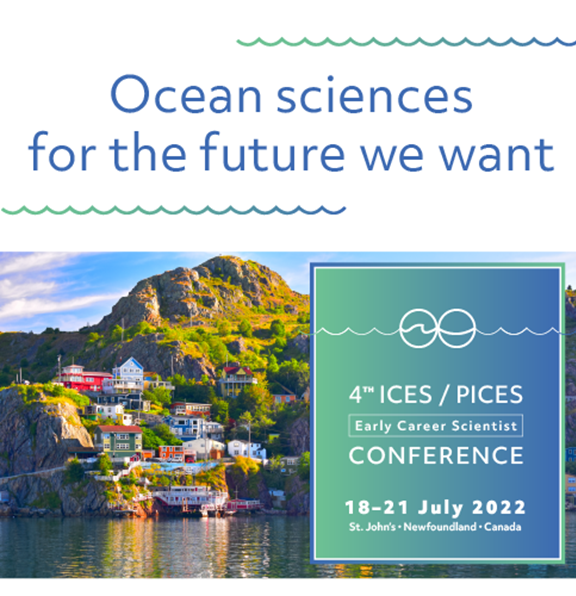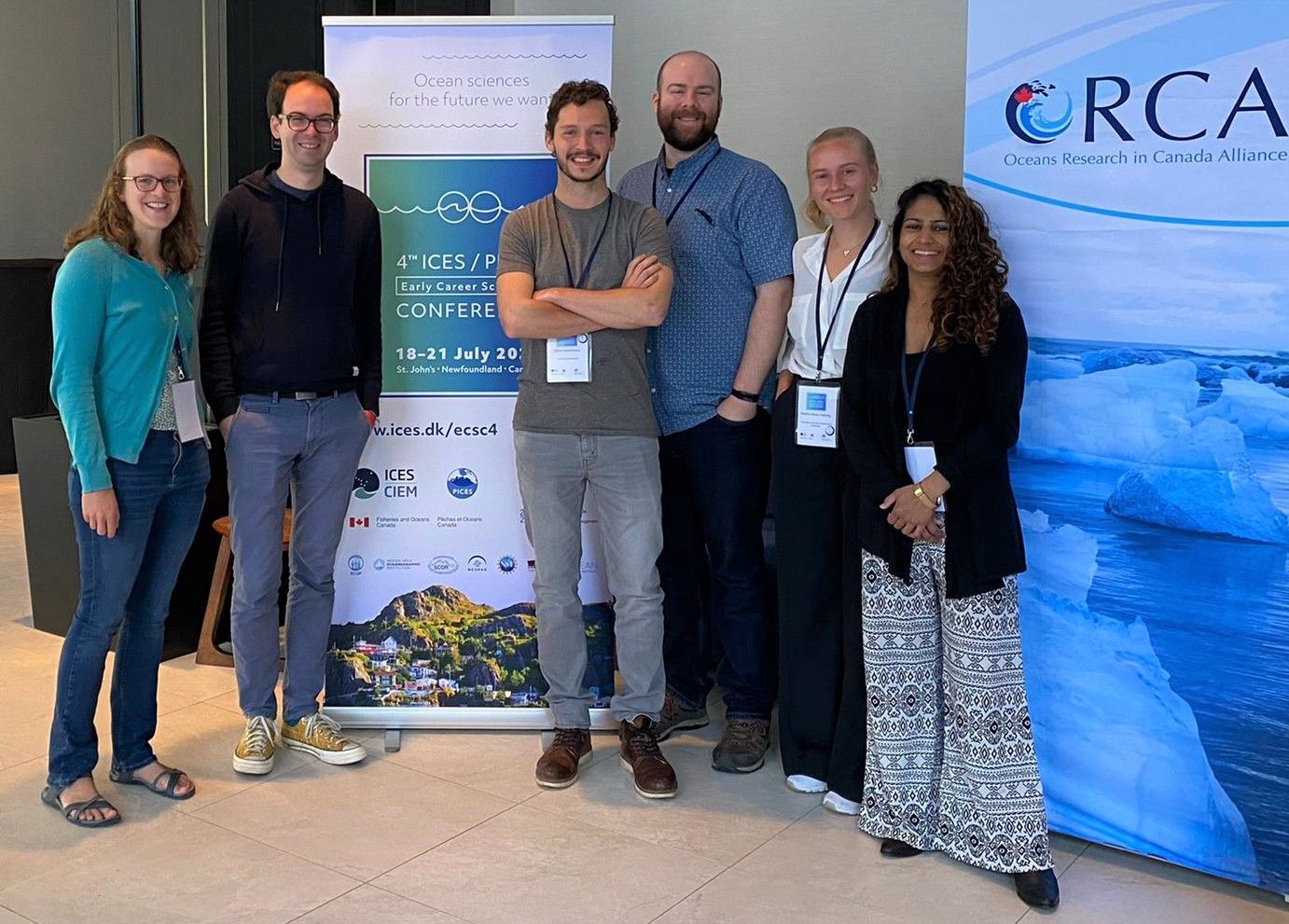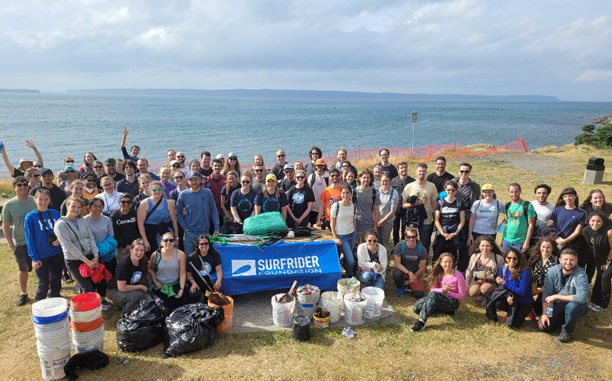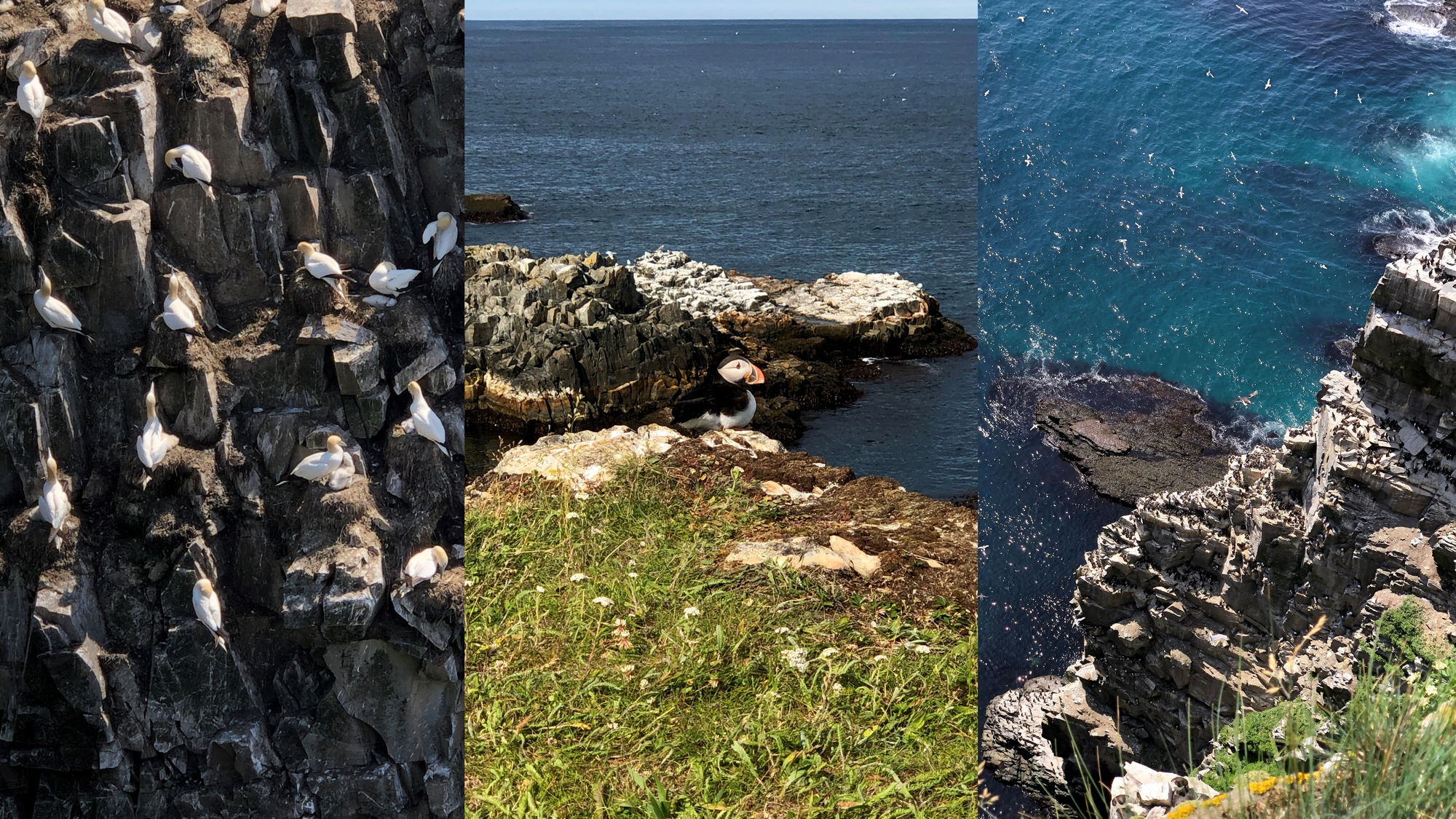Early career ocean scientists at conference in St. Johns, Canada

In July, Marthe Høiberg had the pleasure to attend the fourth ICES/PICES Early Career Scientist Conference, taking place in St. Johns on Newfoundland, Canada. As revealed by the name, this is a conference dedicated to giving a platform to young researchers and encourage their involvement specifically in the management and stewardship of our oceans. The main organizers of this conference are the International Council for the Exploration of the Sea (ICES) and the North Pacific Marine Science Organization (PICES), which this year were hosted by Fisheries and Oceans Canada (DFO).

The conference featured a large variety of topics across scales and many subdisciplines given the broad and encompassing theme of “Ocean sciences for the future we want”. The topics of the sessions ranged from biogeochemical cycles, fisheries and biodiversity, to blue economy and novel technology developments, as well as science communication and engagement. Marthe Høiberg had the chance to present her ongoing work on the development of a characterization factor for macroplastic debris impacts in a session called “Science, management and policy for a sustainable and productive blue economy”. To the authors knowledge, this was also the only (sub)session where the topic of plastic debris was addressed, which is in stark contrast to the focus of this year’s SETAC conference, where ATLANTIS members also contributed. However, this is not unexpected as the ICES/PICES conference has a general ocean sciences theme, and is not dedicated specifically to anthropogenic pollution of our ecosystems. Several other topics of impacts were also addressed, such as those of invasive species in addition to influences on specific species and ecosystems brought about by climate change.
Although plastic pollution was not on top of the agenda of the scientific sessions, the conference (through leadership from members of the Surfrider foundation) arranged a beach cleanup in a near-by area. This was a great opportunity to give something back to the community that we were visiting, which the majority of the conference participants were happy to take.

The conference was also a good platform for networking with enthusiastic young scientists from around the world and admiring the impressive marine environment on Newfoundland. Trips were taken to stunning cliffs which are the home to thousands of northern gannets (Morus bassanus) and common guillemots (Uria aalge), among other species. These two seabird species are known to be subject to plastic debris entanglement, primarily due to the use of pieces of old ropes and nets in the building of the gannets’ nests – however, luckily no incidents were observed on this leisurely visit. Humpback whales (Megaptera novaeangliae), another marine species that is known to swim into and get entangled in both active and passive fishing gear, were also observed in the coastal waters of St. Johns.

It became clear throughout the conference that we are rapidly learning so much more about complex aspects of the marine environment, although we need to acknowledge that in some respects we have only “just” begun. In addition, there is a need to place focus on communication of the importance of the ocean, and especially to create engagement among large inland populations that do not have direct and frequent interactions with the marine environment – although we all depend on it. This was highlighted by a keynote speaker who addressed the understanding of how we influence the oceans and vice versa, a concept termed ocean literacy. Lastly, the role of early career scientists in improving equality and diversity in the marine science field and for the future of our oceans was highlighted.

